“Ever Fallen in Love (With Someone You Shouldn’t’ve?)” - Buzzcocks
On Being Comfortable in Your Own Skin
Pete Shelley was a punk pioneer who eschewed angst and nihilism for softness and vulnerability.
Determined to start a band, two college kids were thumbing through the pages of NME magazine in February 1976 and came across a blurb about a group of pissed-off Londoners with ripped clothes and barely tuned guitars calling themselves the Sex Pistols. “We’re not really into music. We’re into chaos,” laughed guitarist Steve Jones in the interview. Pete McNeish and Howard Trafford read that and borrowed the nearest car to drive from Manchester to London. They’d already booked their first show back in Manchester at the Lesser Free Trade Hall, and their plan was to invite the Pistols to join them as the main attraction.
Anticipation for the show was non-existent. Word-of-mouth and homemade fliers were the only marketing. Little did anyone know that this unremarkable gig, consisting of maybe 40 patrons in a venue that could hold hundreds, would someday be referred to as “The Gig That Changed the World.” Punk rock had officially arrived in the U.K. thanks to McNeish and Trafford.
Although theirs is credited as among England’s first punk bands, Buzzcocks music wasn’t defined by punk stereotypes. Buzzcocks defied the attitudes of the genre while simultaneously triggering a musical tidal wave of future icons.
That night’s 40 concertgoers would later form some of the most prolific rock bands in history:
Ian Curtis, Bernard Sumner, and Peter Hook bought a guitar the very next day and became Joy Division, and later, New Order.
Mark E. Smith started the Fall, a post-punk band that influenced a generation of musicians like Sonic Youth, Elastica, and the Pixies.
Steven Patrick Morrissey wrote a letter to NME the following day. "Despite their discordant music and barely audible audacious lyrics, they were called back for two encores." He was sure he could do better. He later formed the Smiths.
Tony Wilson, a Manchester TV personality, would be inspired to start the Factory Records label, which became the epicenter of Manchester’s thriving music scene throughout the ‘80s, signing bands like Joy Division, New Order, Happy Mondays, Orchestral Manoeuvres in the Dark (OMD), and James.
McNeish and Traffored named their own band after a headline — “It’s the Buzz, Cock!” — in a magazine review of a local television series. “Cock” was a northern British slang meaning “mate” or “pal,” but McNeish found its sexual connotation funny ,and it sounded similar enough to the band name of their heroes from London. Everything came together just in time to tour with the Pistols across the U.K.
They also created stage names. Howard Trafford became Howard Devoto, and Pete McNeish changed his last name to “Shelley,” which is what his mother would’ve named him were he born a girl.
After Devoto left the band in 1977, Shelley assumed the duties of songwriting and lead singer while steering the group into uncharted punk territory: they were going to be nice.
“I won’t be nasty,” he told Melody Maker in 1978. “We’re just four nice lads you could take home to your parents.” Shelley complemented the bratty apathy of the Sex Pistols and the political rebellion of the Clash with his own brand of sensitive rock. He was out as bisexual, and his lyrics about unrequited love didn’t specify pronouns, not as an act of concealment but in an attempt to capture feelings that are universal to all genders. "I tried to be as gender neutral as possible in writing songs, because for me I could use the same song for either sex," he told Manchester DJ Dave Haslam.
Buzzcock’s most successful single, “Ever Fallen in Love (With Someone You Shouldn't've),” was written about Shelley’s friend and roommate, Francis Cookson. "I lived with Francis for about seven years, and then he went off and got married in Switzerland," he said in a Radio Two documentary. The song’s title was inspired by the musical Guys and Dolls. The character Adelaide says to Marlon Brando’s character, “Wait till you fall in love with someone you shouldn’t have.” Shelley thought of his own relationship with Cookson.
I can't see much of a future
Unless we find out what's to blame, what a shame
And we won't be together much longer
Unless we realize that we are the same
Ever fallen in love with someone
Ever fallen in love, in love with someone
Ever fallen in love, in love with someone
You shouldn't have fallen in love with
In 1978, Buzzcocks appeared on the popular music show Top of the Pops. Although the pace of the music had the same urgency as their punk peers, their aesthetic had all the edge of office workers on a cigarette break, opting for button-down shirts and combed hair instead of dirty T-shirts and angry scowls. The only hint of subversion was worn in a button on Shelley’s guitar strap with the words scrawled, “I LIKE BOYS.” Another button said, “How dare you presume I’m heterosexual.” While the Sex Pistols would routinely get banned from television appearances and interviews for drinking and cursing and promoting anarchy, Pete Shelley’s queer-coded lyrics and little buttons were hardly a blip on the media’s radar.
By 1979, the punk rock genre had deteriorated. As quickly as the movement exploded in England, it was rendered obsolete as bands drifted away from the shrapnel for a broader sound. Punk would faction into smaller sub-categories throughout the ‘80s like hard-core, which was heavily influenced by the Pistols, and pop-punk, which was springboarded by Buzzcocks. Shelley disbanded the group in 1981 for a solo career. The post-punk and New Wave genres that were emerging in the form of bands like Joy Division and the Cure presented an intriguing new direction for Shelley.
His first single as a solo artist, the synth-pop jam "Homosapien," was promptly banned by the BBC for its allusions to gay sex.
I'm the shy boy
You're the coy boy
And you know we're
Homosapien too
I'm the cruiser
You're the loser
Me and you sir
Homosapien too
Homo-superior
In my interior
But from the skin out
I'm homosapien too
Though “Homosapien” failed to chart in the U.K or U.S., it did play in heavy rotation on MTV during the station’s first year on-air. They didn’t get the memo about the BBC’s ban.
Shelley would reunite with the rest of the Buzzcocks by 1989 and continue to tour until his death in 2018. His influence on rock n roll can’t be overstated, inspiring generations of musicians. Though Shelley defined the U.K. punk movement, he was always its anomaly — a misfit among misfits. He refined the punk formula, bucking its machismo image for a softer, open-hearted approach. “I enjoy writing songs that do not exclude anyone”, Shelley told the NME in 1977. “The only people they exclude are people who don’t know anything about love.”Green Day frontman Billie Joe Armstrong wrote on Instagram: “Buzzcocks pretty much invented a style that would influence multiple generations of lonesome hearts and weirdos.”
What Pete Shelley’s naked honesty proved is that staying true to yourself is the most punk rock act of all.
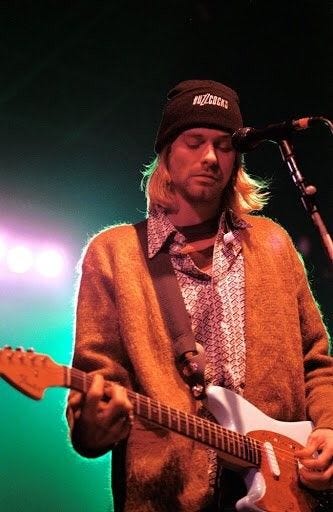
Did you catch last week’s issue?
No.23 - "Relax" - Frankie Goes to Hollywood
How a dance hit about gay sex went from banned to the top of the charts.

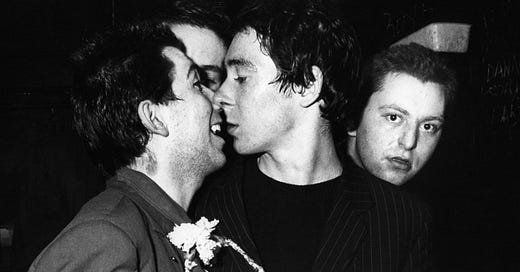




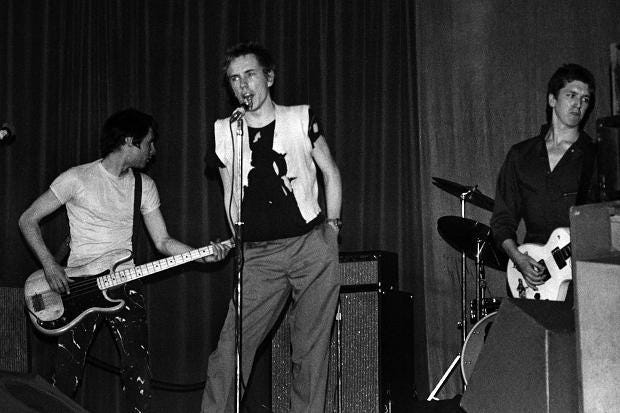
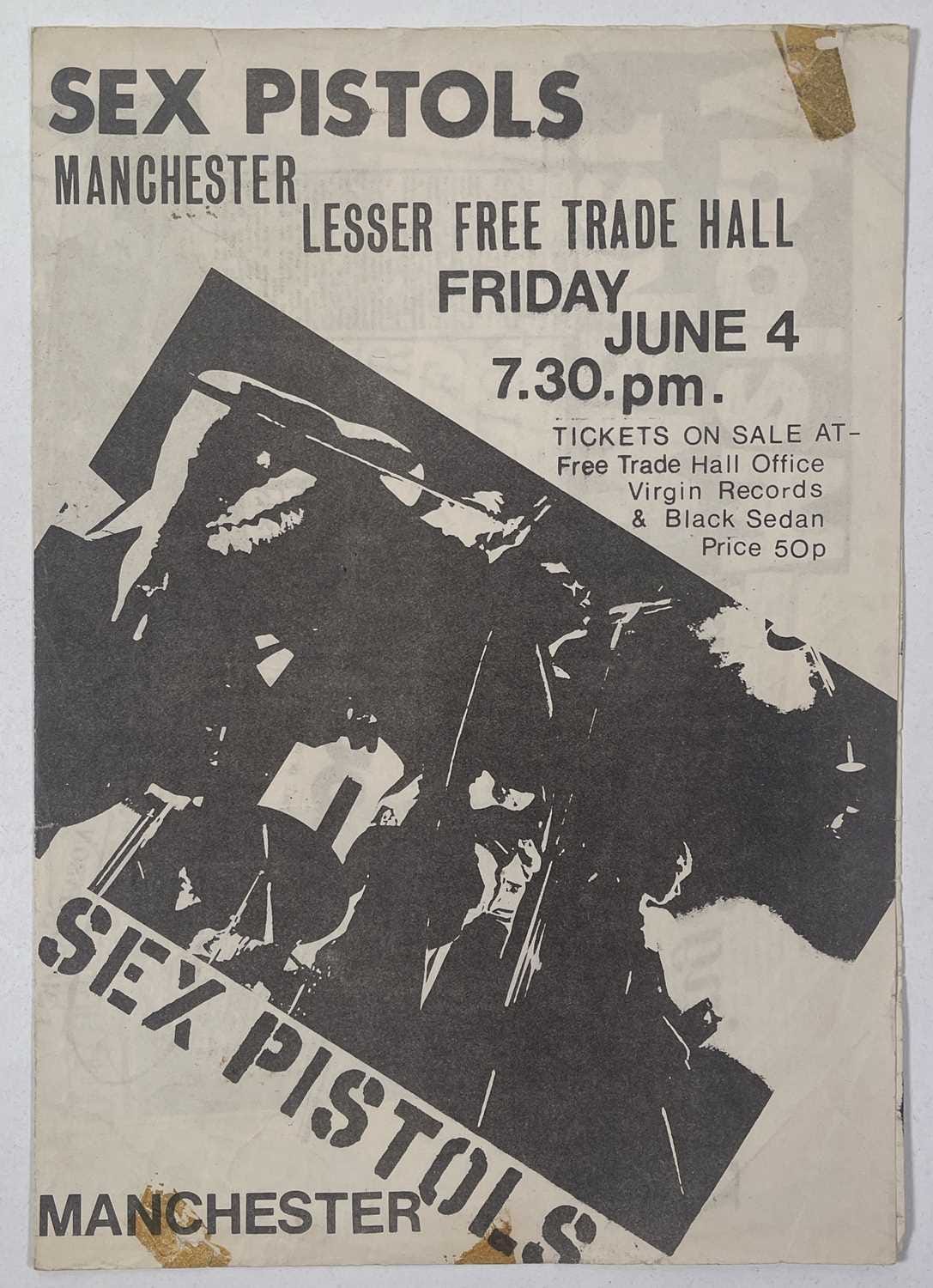
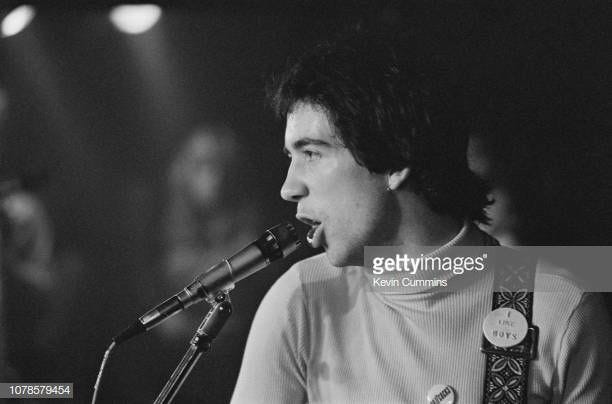
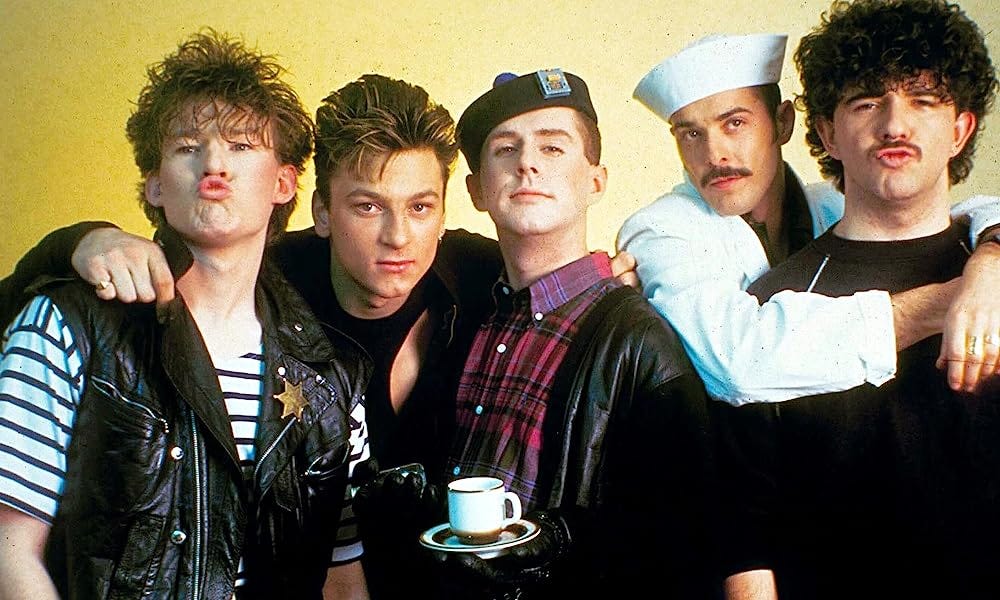
I am a lifelong nice boy who prefers to date nice boys, but I also... you know... like to see nice boys without their clothes on. As such, I am delighted by this write-up about a punk pioneer who seems to have fit the same bill. I didn't know anything about this band, and It's amazing to discover they're the roots of aesthetic, emotional, and sexual energies in pop music that have always spoken to me.
This track and "Homosapien" are both underrated classics!
P.S. Probably old news, but Dave Haslam is here on Substack: https://davehaslam.substack.com/